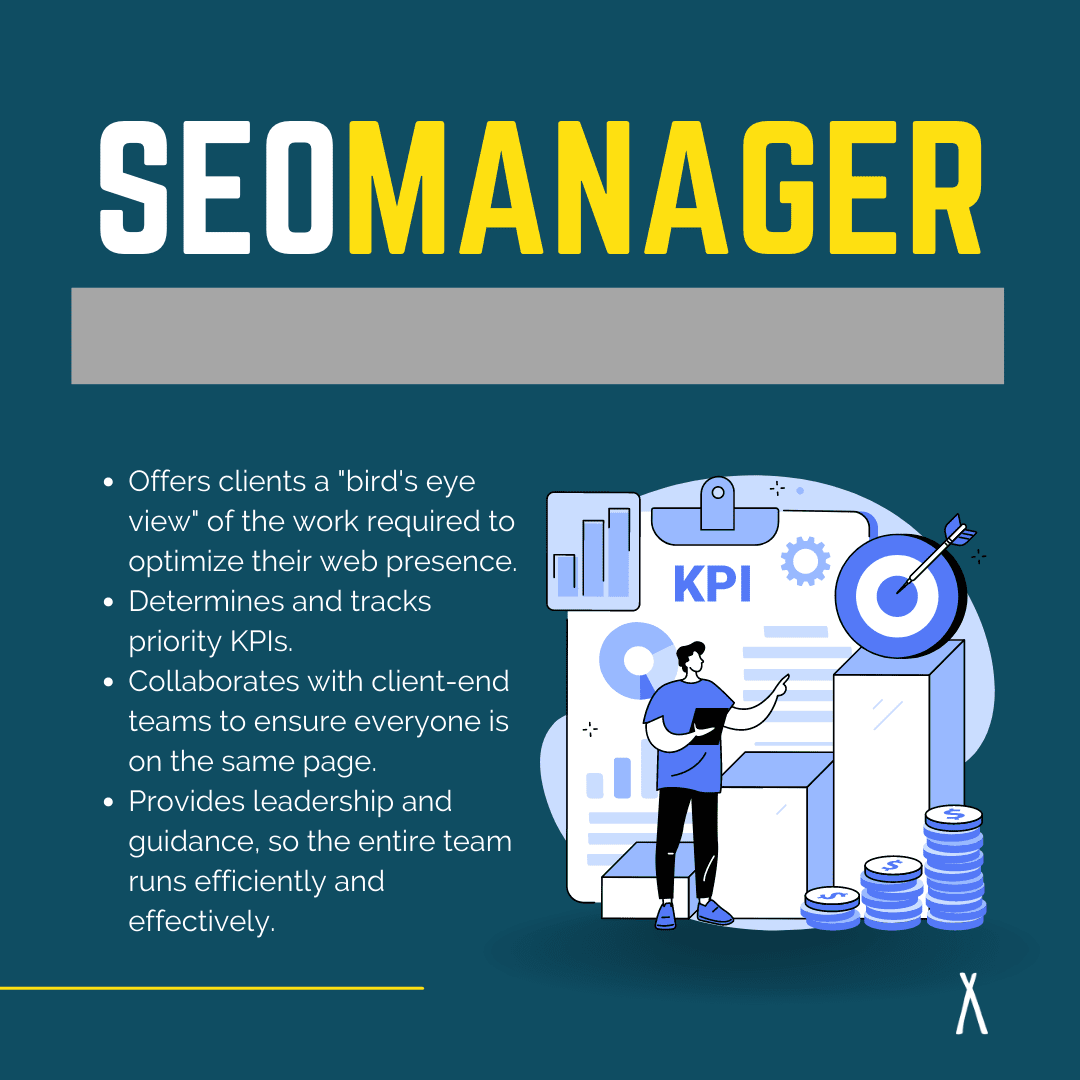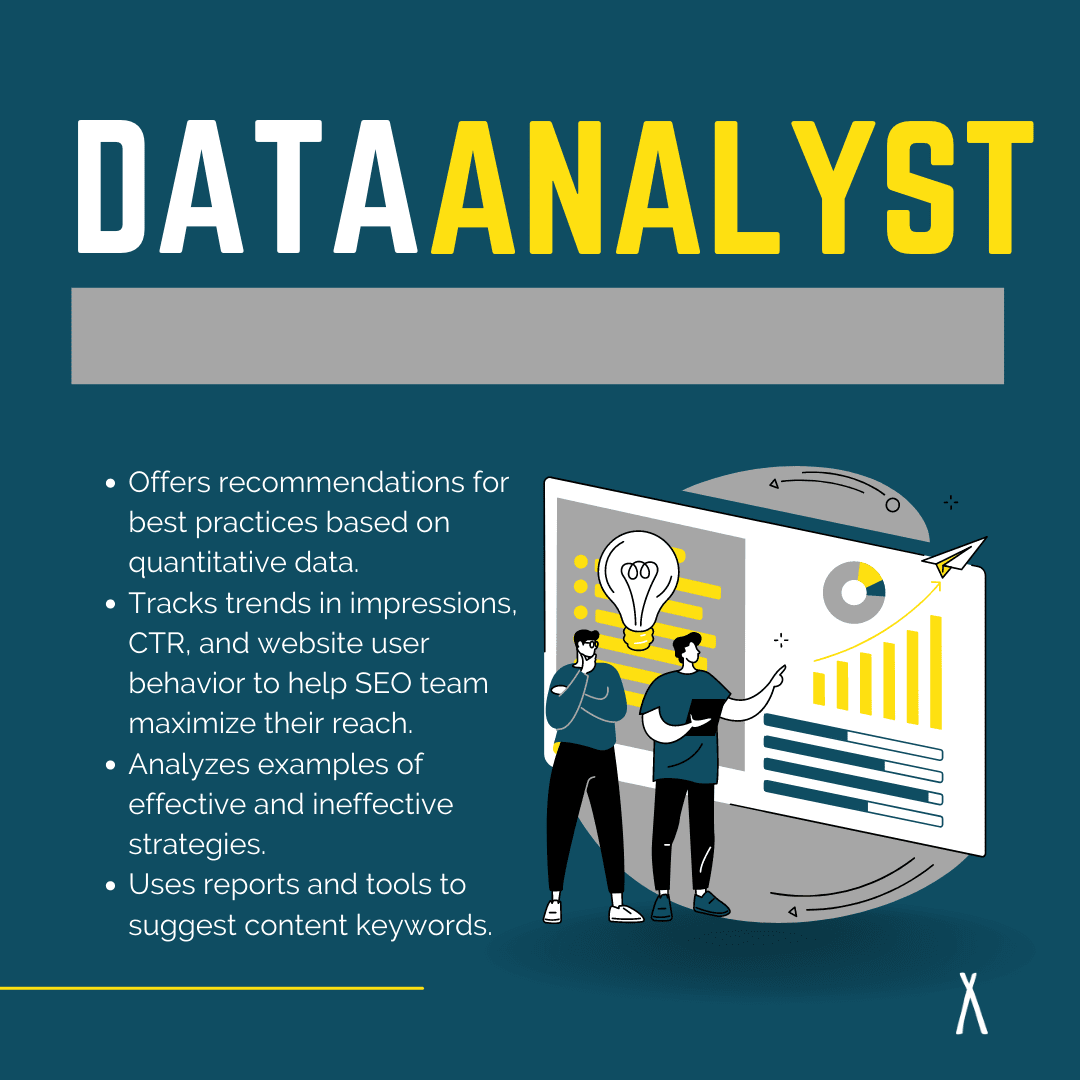5 Must-Have Qualities of an SEO Management Team

If you spend most of your time and effort driving traffic through social sites, it might be time to reconsider.
A study conducted by BrightEdge in 2019 found that paid and organic searches drive a combined 68% of all traffic to your site, with organic accounting for 53% of that.

To capitalize on this fact, businesses should direct their attention to creating an SEO strategy, run by a team of SEO experts who will combine careful planning, content strategy, and digital marketing best practices to skyrocket your SERP position.
The first question that often comes up when businesses get on board with optimization is whether to work with an in-house SEO management team or to seek outside help from SEO agencies.
Today, we’ll attempt to help you make the right choice by diving into some of the pros and cons of each, as well as taking a look at key positions and skill sets that make an SEO dream team function.
Let’s get started!
What is SEO Management?
SEO management consists of the timeline, budget, and strategy that a business dedicates to increasing its SERP rankings.
The strategy must consider technical SEO, content marketing, mobile-friendliness, and web development best practices to ensure a particular website is on the right track for appearing when customers search particular, relevant target keywords.
An SEO team typically comes in two varieties: In-house and outside agencies.
In some cases, especially for large websites, there’s a hybrid model wherein SEO agencies work closely with a business’s marketing department to “split the work.”
For example, an in-house content team might write long-form blog posts, while the outside agency focuses on keyword research, optimization, and building blog categories that structure the overall content marketing strategy.
In-House SEO Team Pros and Cons
With an in-house SEO team, a business would hire people of their choosing for a particular role within the SEO department.
This creates more flexibility to hire team members internally or find SEO professionals who bring new ideas and innovation to your marketing strategy.
Pros
- The SEO team’s efforts are solely focused on your business.
- You have the ability to control costs, to an extent, by eliminating the need to purchase particular “packages” of services for a set price.
- An in-house team shares the values and expectations of the workplace culture you’ve cultivated.
- You can hand-pick each team member and structure your SEO team as you see fit.
- Businesses can ensure the entire department has access to the latest tools, training, and technology, ensuring your own SEO team has the edge over the competition.
- Company leadership can sit in on SEO meetings for a more comprehensive picture of progress, success, and weak points.
Cons
- Costs can be very prohibitive. You’ll have to consider onboarding, health insurance, training, retirement contributions, salary, and other benefits for at least one person.
- Of course, an entire in-house SEO team needs multiple team members to function correctly. Search engine optimization is a constantly evolving process that requires attention to detail and dozens of skills to pull off correctly, a task that is virtually impossible for a single person to handle.
- Your team will be starting from scratch, while an agency offers years of successful practice to call on when crafting your strategy.
- Often, there is little accountability in maintaining honed skills that evolve as the industry does. SEO agencies, on the other hand, are competing with other firms in their field, which means that they are constantly seeking opportunities to provide their clients with the most advanced techniques.
Outside SEO Agency Pros and Cons
Many businesses opt to outsource to an SEO agency rather than creating an internal SEO management team.
While your company won’t necessarily have full control over the daily operations of the team, they can mitigate most conflict and differences of opinion by investing the time in interviewing firms until they find one that meets their exacting specifications.
Pros
- Businesses can skip the process of acclimating an in-house SEO team to the workplace culture, the expense of onboarding, and initial training for new hires without experience.
- Because they have worked with a variety of clients in countless industries, they bring more to the table in terms of SEO “street smarts” and industry-specific trends. In-house teams often suffer from tunnel vision, only utilizing strategies that have worked for similar companies in the past.
- Instead of adding people to the team structure as you can afford them, you get the full range of skills from day 1.
- By avoiding the costs of an in-house team, you have more budget to spend on things like PPC ads and social media boosted posts.
- Most agencies offer flexible packages attuned to your exact needs. The cost is based on the services you require– No more, no less.
- Outside SEO teams are already paying for a suite of subscriptions and software that make SEO possible. When you hire an internal team, you can expect to take the hit for those costs.
Cons
- They have other clients, which means that their time and attention will not be solely focused on your business.
- There may be some level of head-butting and culture clashes regarding how and when work gets done. For example, clients that are perfectly happy to answer emails on the weekends might find it off-putting that their SEO team doesn’t feel the same way.
- It’s difficult to coordinate schedules between an outside agency and your internal marketing team. That leaves room for things to “slip between the cracks” and miscommunications to occur.
SEO Agency Team Structure
While there is some variance within an SEO team structure, depending on the skillset and specific tasks being undertaken, these roles are considered an essential part of an effective SEO program.
SEO Manager

The SEO manager will spend their time ensuring that each and every cog of your SEO team functions efficiently, effectively, and to the benefit of your business.
They keep a close eye on KPIs, collaborate with your marketing team, and provide a bird’s eye view to the client about the overall progress of your SEO efforts.
Their management style will determine the overall success of the team, so ensure they can demonstrate organization, knowledge of SEO tools, and leadership.
Project Manager

A project manager will function as the go-between for the SEO manager and the SEO team. They are the key player in ensuring things are done on time and assign a particular team member to complete project functions according to their abilities.
Outside of scheduling and assignments, project management consists of providing internal feedback, conducting check-ins at weekly meetings, and ensuring that the team is focused on the right goals.
Data Analyst

Certainly, the most numbers-oriented position within an SEO agency team structure, the data analyst uses a pool of reports to track traffic, sales, and trends. They use their intimate knowledge of this data to offer recommendations for the next steps for your SEO team.
For example, their SEO work typically includes tracking search insights for a given keyword, then using that data to present the content team with the best keywords to focus on to reach a particular audience or emphasize a specific product.
Web Developers

Web developers dive into technical SEO, ensuring that your site’s web pages meet SEO criteria. That includes giving search engines what they want so that they will crawl and index your website, which in turn increases rankings.
They are adept at working with web designers to increase site speed, complying with Google’s mobile-first indexing rules, protecting the security of both server-end and client-end functions, and adding metadata.
Digital PR Manager/ Link Building Manager

While organic search is the primary traffic catalyst, a digital PR manager spends their days finely tuning your social media presence. They create posts, respond to followers, and ensure that your content efforts are sent out across various platforms.
PR managers often handle link-building opportunities, reaching out to other businesses to encourage guest posts and shoutouts.
Link building is an essential piece in digital marketing, but also one of the most difficult, so many agencies dedicate a full-time person to handle outreach– a luxury many SMBs cannot afford for their own SEO team.
Content Writers

Content is the lifeblood of a solid SEO team, as, without it, there’s nothing to optimize!
As the authors of the team, they create content that can be optimized to help your business appear on the first SERP. They do so by focusing on the tenants of the audience- and search engine-friendly articles that hone in on keywords that your customers search for.
Most content creators have in-depth knowledge of SEO, as it is far easier to write from scratch with optimization in mind than to edit pre-written content to meet those expectations.
They also create core website content, such as product descriptions and home page text. Thus, in addition to writing for SEO, they must have a grasp on how to engage and persuade your audience.
5 Qualities Your SEO Management Team Should Bring to the Table
As you consider whether to build your own SEO management team or work with an outside company, there are 5 considerations that should be non-negotiable if you want to see the money spent on SEO turn into a sustainable online presence for your business:
1) They Never Guarantee Rankings or Offer “Overnight Results”
While it might seem that an ideal SEO team works magic to improve rankings, that’s not quite how it works.
No matter how effective the team is at their jobs, there are too many factors– like other websites, Google’s ever-growing algorithm updates, and consumer behavior– that influence whether your site climbs to those key positions on the SERP.
True optimization is a constantly evolving process that requires consistent attention and effort. Some months, you see rankings improve by leaps and bounds. Others, your growth will slow to a crawl, no matter how much you post, optimize, and link building.
It’s just the nature of the game, and a trustworthy SEO team will make sure their clients understand that.
2) They Deep-Dive into Keyword Research
Keyword research is the lynchpin of an SEO strategy because that’s how audiences find your content online.
Each time someone makes a query with a relevant keyword, they are doing so with the intention of finding businesses just like yours. Without optimizing for those commonly searched keywords, you’re missing out on invaluable organic traffic.
Thus, in order to effectively prioritize content, SEO teams need to be deeply engaged with keyword data to find entry points for your company to make its mark on the search engines.
3) They Prioritize Content Marketing
Content on your website should exist as a paradigm for the industry. It should strive to be the foremost authority on whatever keyword, question, or product it’s addressing.
Otherwise, why would any customer choose your company over your competitor who offers more valuable information about the things they care about?
Of course, technical SEO is crucial, but an SEO agency worth its salt will know that genuine, long-term growth depends on creating evergreen content that matters to your customers.
4) They Stay Up-to-Date on the Right Tools and Information to Get the Job Done
The SEO industry moves at breakneck speed. The SEO team you choose has to be willing to keep pace with each new iteration of tools and techniques or risk backsliding client growth.
Ask the team what they use to stay up-to-date on Google’s algorithm, industry-standard best practices, and ongoing education. Their answer should offer a mix of
5) They Have an Ongoing Dialogue with Their Clients
Your SEO management team should make you feel welcome to ask questions, invite you to sit in on strategy meetings, and provide you with a regular stream of updates about your business’s progress in climbing the SERP rankings.
This may come in the form of weekly emails, monthly reports, or as-needed phone calls. Every agency is unique in both method and frequency.
While you shouldn’t expect a daily check-in from an outside agency, you should get to know their policy on sharing information.
If you’re not a fan of any aspect, as where there’s flexibility. Most firms are happy to negotiate communications, so long as it does not infringe on their other clients or personal obligations.
Wrap Up
SEO is a beast for most businesses to contend with. Not only is there the initial work that goes into getting a site up to speed, but the ongoing optimization can quickly dominate your time and attention.
That’s why most companies choose to work with a professional SEO team rather than hiring an entire cadre of folks to cover all the necessary skills to get the job done.
If you’re just getting started on your journey to optimization, let’s chat about your goals and experiences with the process. The NATIV3 SEO management team can deftly handle all aspects of your optimization needs, from creating a crawlable site index to crafting professional content that makes your customers take notice of what you have to offer.
Fill out our contact form, tell us about your project, and one of our experts will be in touch shortly to help you take your first steps forward into the world of SEO.